America's reality TV president relies heavily on 2016 script for 2020 campaign
For former Trump insiders, 2020 campaign unfolded with many "déjà vu" moments.
The scene last week was strangely familiar -- with just minutes to the last presidential debate, a surprise guest stepped before cameras to hurl accusations at the Democratic nominee and then headed into the debate hall.
That stunt engineered by President Donald Trump's supporters was a re-run. Four years ago, Trump made the same, made-for-television move, mounting a hurried press conference ahead of his final debate with three women who had accused his opponent's husband of inappropriate conduct.
The episode was one more reminder that, as he has sought reelection in 2020, Trump has relied heavily on the playbook he drew up to win the White House once before.
"It's a lot of déjà vu," said Rick Gates, who was Trump's deputy campaign manager in 2016, before he pleaded guilty to lying to federal authorities in relation to the Russia investigation. "He's trying to re-create that full out warfare he created in 2016, and in part so many of his actions are because Trump himself is superstitious."
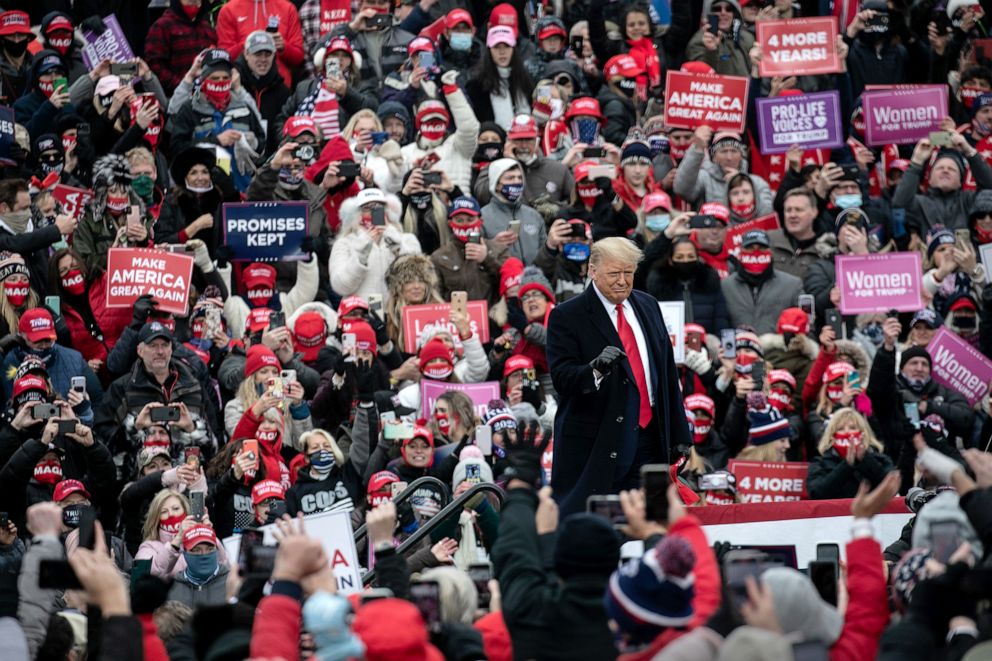
Rewriting the modern campaign
In tactics, message and approach, Trump has not strayed far from his last campaign. The moves from 2016 that have returned include the unrelenting play to his base, an attempt to focus on mysteriously discovered emails alleged to be from the Democratic camp, and the way the president has plotted a mad dash to Election Day using multiple rallies to drive his most loyal supporters to the polls.
"Trump really wants to recreate what worked for him in 2016," said Alex Conant, a veteran Republican strategist.
In so many ways, political consultants say, Trump broke the mold in 2016 for what a modern campaign would look like. He mounted a massive data operation and used it to direct targeted messages to his supporters on social media. He relied on his knack for grabbing headlines to appear on network morning shows and late night talk shows – television attention that cost his campaign nothing.
By one estimate, from data from the tracking firm mediaQuant, the real estate magnate received $4.96 billion in free earned media in the year leading up to the presidential election and $5.6 billion for the duration of the campaign. That was more than Hillary Clinton, Bernie Sanders, Ted Cruz, Paul Ryan and Marco Rubio combined.
His overall approach to the race was also unique. Most presidential candidates have followed a time-honored path -- focusing on their base of support in the primaries and pivoting to more centrist rhetoric during the general election to win over independent voters. Trump never made the pivot, Conant said.
His goal in 2016 is the same goal he has now, "to disqualify the Democratic nominee with independent voters," Conant said. The risk, he added, is that "some swing voters who voted for him in 2016 don't like the sequel."
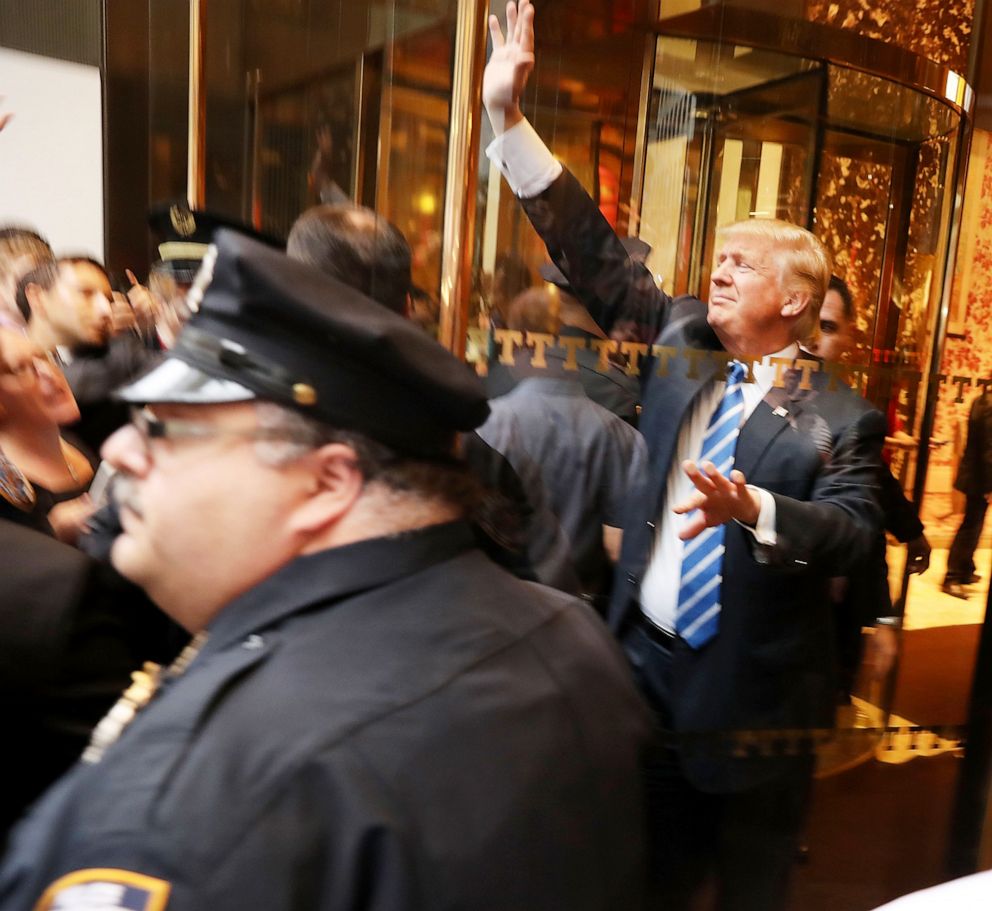
When crisis hits, a Trumpian response
One of the most treacherous moments for the Trump campaign in 2016 came with the October release of audio from an "Access Hollywood" taping. Trump was heard talking about grabbing women by their genitals because, in his opinion, "when you're a star they let you do it. You can do anything."
After issuing a rare apology and facing pressure from donors and party officials to drop out, Trump bucked convention. He headed onto New York's Fifth Avenue, pumping his fist in the air for his supporters and the throngs of media present to convey he remained in the fight.
There was a similar scene in late September, after Trump faced another significant challenge. Having tested positive for the coronavirus after months of downplaying the deadly pandemic, Trump was admitted to the Walter Reed hospital. Still not medically cleared, Trump needed to send the same message as four years ago – he was not laying low.
Trump made the impromptu decision to defy doctors and leave the hospital complex to wave to supporters and assembled cameras from the back of an SUV. As if to drive home the point, he made a similar gesture from the White House balcony days later, saluting to cameras and an invisible audience.
Different year, different challenges
Trump is finding that the 2020 cycle has not made it easy for him to simply hit rewind and press play. Matthew Dowd, a political adviser on the campaigns of President George W. Bush and now an ABC News consultant, said Trump's 2016 strategy worked for the unusual nature of that time -- akin to a football coach who has a perfect strategy for games in the snow.
"He is really good in snow games but they don't happen that often," Dowd said. "In 2016 he had a unique environment – he found a country with a lot of angry working class white voters who did not like his opponent."
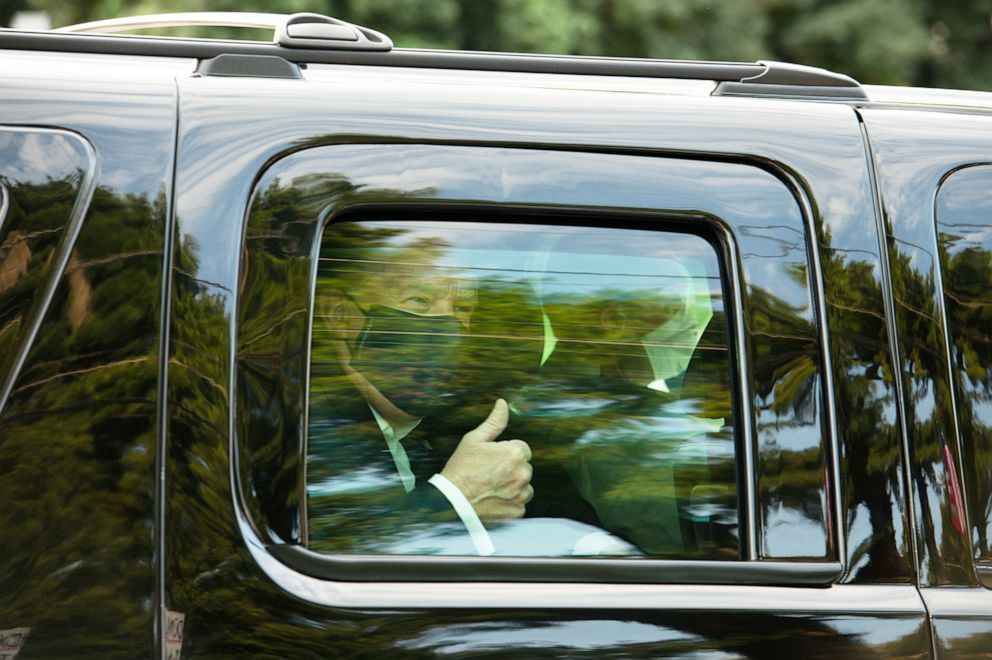
This year may look different, Dowd said. But Trump "basically has not changed since he came down the escalator."
This cycle, media attention has instead remained focused on the rising spread of coronavirus and the unfolding humanitarian crisis. Some independent voters appear to have tired, after four years of headlines and thousands of tweets, of the daily barbs and jabs.
Trump's focused attacks on Hunter Biden, for instance, have largely remained fodder for conservative media outlets such as Fox News and the New York Post. To the frustration of his political team, mainstream outlets have not carried the stories because of unresolved questions about the authenticity and origins of emails attributed to Hunter Biden. When Trump tried to broach the subject with CBS News "60 Minutes" anchor Lesley Stahl, she shut it down.
"You know, this is '60 Minutes,'" she said. "And we can't put on things we can't verify."
Though the state of the nation and the mood of the electorate is far different than in 2016, that has not stopped Trump or his team trying to recreate the moments they believe helped him win four years ago.
In his base, support has jelled
If Trump is successful this cycle, multiple sources who worked on the 2016 operation and remain involved in the president's 2020 efforts said they will credit the way his base of supporters has matured.
Four years ago, Trump was the nominee that a splintered Republican Party was stuck with after a bruising primary fight. One senior campaign official at the time says he basically had 90 days from becoming the nominee to bring the party together behind him.
"The difference now is he's the sitting president, it is his Republican Party, he's the guy that raises all the money and he has had this network for the last four years," the official told ABC News.
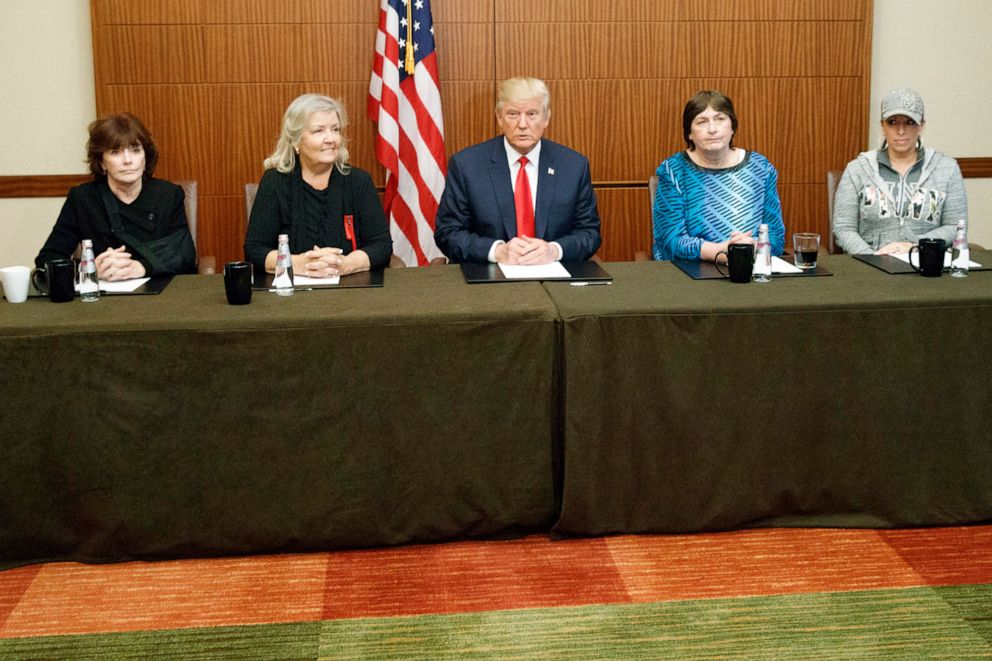
Gates said in 2016 the Republican National Convention pored over detailed data to identify supporters and target them with messages to get them to vote. This time, though Gates is not part of the campaign, he said he can see Trump is benefiting from more organic movement by his supporters.
"Look at the boat parades," Gate said. "I'm not saying that's going to help him win, but that's something that quickly started popping up around the country and it was not because the Trump campaign organized these events. People who had been energized took it upon themselves and they spread across the country."
If Trump is defeated, some say the man who reveled in branding his opponents during the 2015 primary and general had finally run into someone who could not easily be labeled. During the run-up to the 2020 campaign, Trump attempted to label Joe Biden as "sleepy."
But the effort to vilify Biden did not penetrate the way his attacks on Clinton did, one Trump adviser said, noting that Clinton entered the campaign with higher negatives. The adviser said the campaign should have been focused more on Biden's early efforts to attract support from the progressive wing of his party.
"With Biden, where we missed the opportunity was not paying attention to what he was doing in the primaries," the advisor said. "We needed to make him the vessel of [the party's progressive wing, and] … play the primary tape and make people believe this is not the guy you think he is when it came to the general."
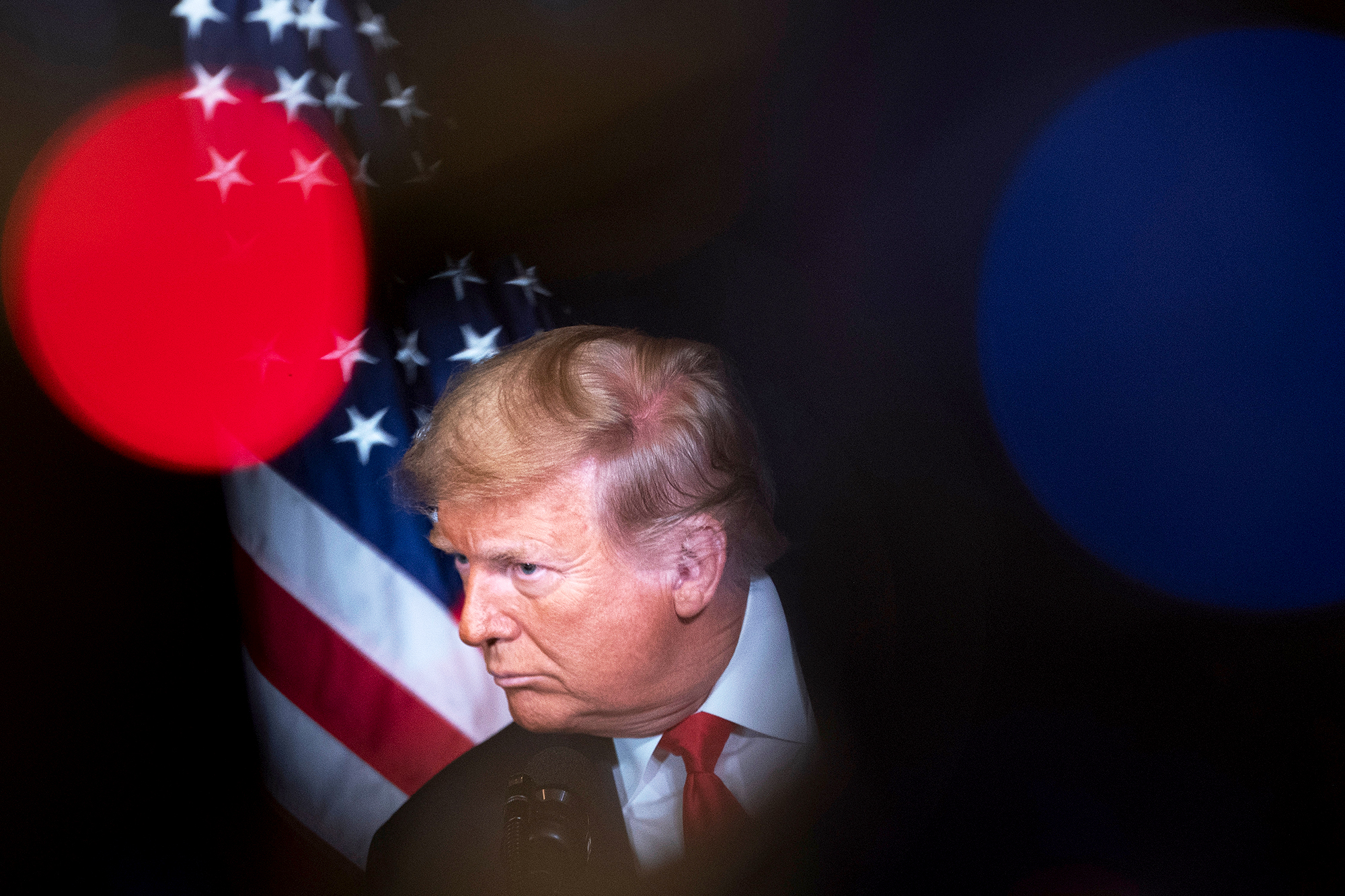
Closing time
On the Monday before Election Day in 2016, Trump hit the road early with an initial plan to end the night in New Hampshire, the state that gave him his first win of the primary cycle. But campaign operatives saw glimmers of hope in Michigan and had been encouraging the candidate to return there. After midnight, he added that one extra stop.
"Did you ever think you would be hearing a major speech like at around close to 1 in the morning? Are we crazy? Is this crazy? It's crazy," Trump told a crowd of supporters gathered in Grand Rapids for his final rally of the 2016 cycle. "Today we're going to win the great state of Michigan and we're going to win back the white house. We're hours away from a once in a lifetime change."
Polling in the final hours of the 2020 campaign shows Michigan will be much a tougher setting for Trump than it was four years ago. Once again, President Trump is scheduled to close out his campaign with a stop back in Michigan Monday night.
"It's superstitious," one adviser told ABC News. "But that's who he is."




